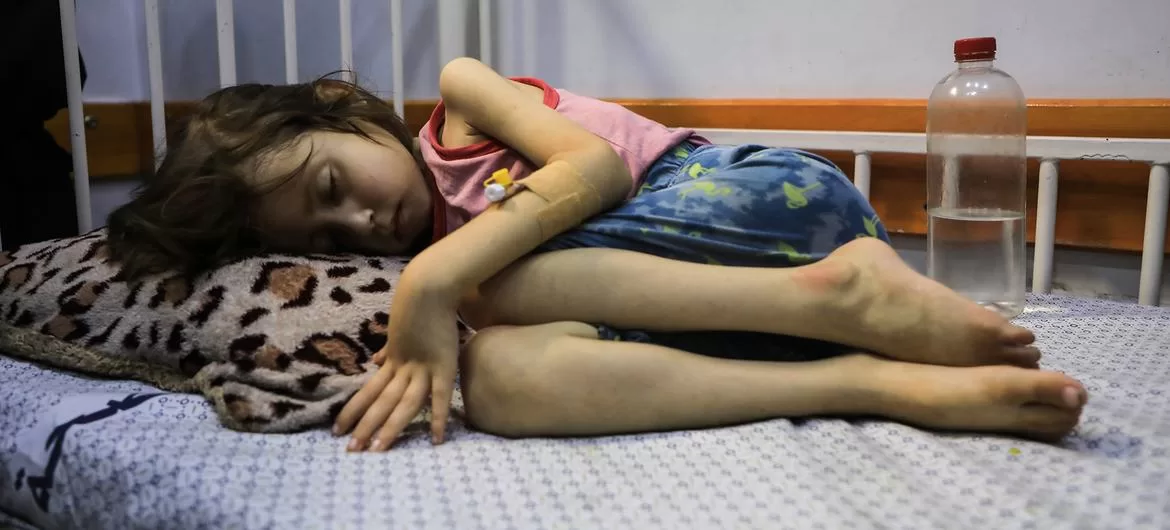
UNITED NATIONS, August 24 (WSH) — More than half a million people in Gaza are already trapped in famine conditions, facing starvation, destitution and preventable deaths, according to a UN-backed food security report released Friday.
UN Secretary-General António Guterres called the findings of the Integrated Food Security Phase Classification (IPC) “a man-made disaster, a moral indictment – and a failure of humanity itself.” He stressed that famine is “not about food, but the deliberate collapse of systems essential for human survival.”
Crisis spreading across Gaza
The IPC warns famine will soon spread beyond Gaza City into Deir Al Balah and Khan Younis, with over 640,000 people expected to face “catastrophic” conditions by late September. Another 1.14 million will be in emergency-level food insecurity, while nearly 400,000 remain in crisis.
UN agencies report hunger-related deaths are climbing sharply, child malnutrition is accelerating at “a catastrophic pace,” and hundreds of thousands have gone days without food. In July alone, more than 12,000 children were identified as severely malnourished — six times higher than at the start of the year.
Israel’s legal obligations
Guterres underscored that, under international law, Israel as the occupying power must ensure food and medical supplies reach Gaza’s civilian population. “No more excuses,” he said. “The time for action is not tomorrow – it is now.”
The UN rights chief Volker Türk warned that using starvation as a weapon of war constitutes a war crime, and that resulting deaths may amount to willful killing. He urged Israel to immediately end the famine, grant full humanitarian access, and prevent further civilian deaths.
Ceasefire and humanitarian access
UN agencies echoed the Secretary-General’s call for an immediate ceasefire, the release of all hostages taken on 7 October 2023, and unrestricted delivery of large-scale humanitarian aid. They cautioned that intensified Israeli military operations in Gaza City could deepen the catastrophe, particularly for children, the elderly and people with disabilities who cannot evacuate.
A famine of the 21st century
Tom Fletcher, the UN Emergency Relief Coordinator, described the crisis as “a famine within sight of food, blocked by systematic obstruction.” He added: “This is a 21st century famine — monitored by drones, enforced by advanced weaponry, and, in some cases, openly promoted as a weapon of war. It will haunt humanity.”
Nearly all farmland in Gaza is damaged or inaccessible, devastating local food production. More than 90 percent of the population has been displaced, while aid trucks remain stalled at the border.
For the first time, famine has been officially confirmed in the Middle East, marking what UN officials call “the most severe deterioration” ever recorded by the IPC system.




